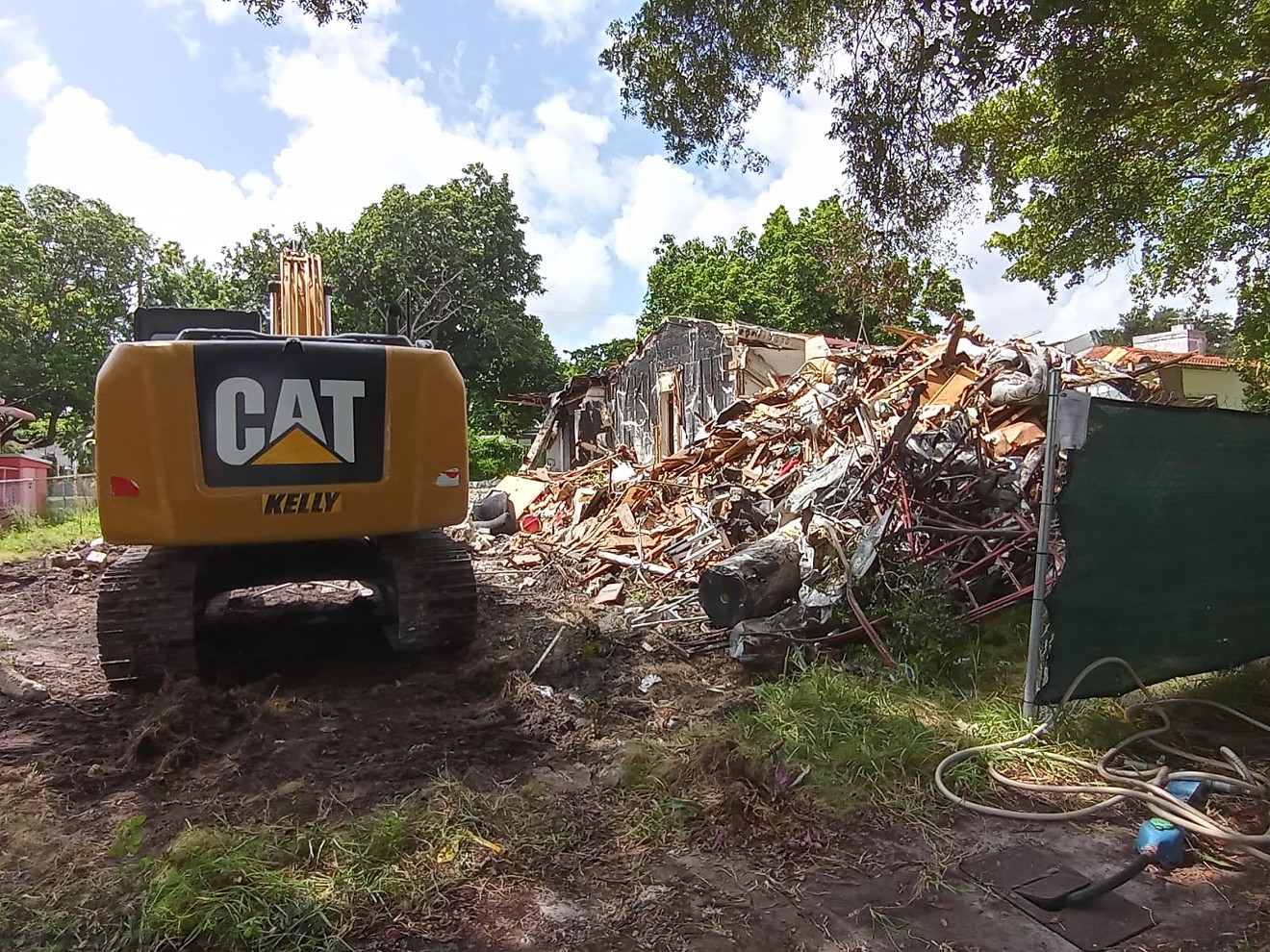Hamilton, a 70-year-old retiree, has acknowledged there were issues with the house, including previous fire damage, broken windows, and a lack of power and running water. Photos and documents provided by the city clearly show that and further claim the home had "advanced deterioration throughout." But the house was Hamilton's family home; it was a roof over his head. The demolition effectively put him out on the street in the middle of a pandemic and has now made him a ward of the city.
Now, the demolition has led to a potential policy change, although Hamilton's attorney questions whether the change would have helped him prior to the home being razed and whether it'll help anyone else whose house might be torn down in the future.
During yesterday's Miami City Commission meeting, Commissioner Keon Hardemon sponsored a measure that would create a procedure for sending out courtesy notices to immediately neighboring property owners and social-services organizations before unsafe structures are demolished.
The resolution says the city is to send out a series of notices to property owners and other "legally interested parties," but that it may be helpful to also inform "local human services resources that such action is imminent in case any persons decides to come forward and seek assistance."Commissioner @KeonHardemon, who is running for county commission & has few meetings left in office, proposed pocket item about courtesy notices before demolition orders are carried out for unsafe structures. Comes after this issue, covered by @cnsaintlouis https://t.co/xFKKTgaffW
— Joey Flechas (@joeflech) September 10, 2020
Soon after the Miami Herald broke the story about the demolition on August 29, Commissioner Ken Russell said on Twitter that although it appeared the city followed proper protocols before tearing down the house, those protocols are lacking. Hardemon tweeted that he would sponsor emergency legislation to help people like Hamilton. In a Miami Times editorial, Hardemon wrote that the demolition highlights a problem that historically Black communities have long faced.
"Like Mr. Hamilton's parents, many of our ancestors purchased homes in neighborhoods like Liberty City and established a Black middle class in the inner cities," Hardemon wrote. "However, when those ancestors aged, the homes fell into disrepair because their children and grandchildren did not continue to invest in the homes or sold the homes to move to more desirable locations, especially in north Miami-Dade and Broward County."
Yesterday's commission meeting, the first since the August 26 demolition, presented as good an opportunity as any for commissioners to address what happened to Hamilton and what aid the city is offering. Instead, commissioners unanimously approved the proposed measure — a pocket item that wasn't placed on the meeting agenda and was lumped together with other items — without discussion.
"Michael is in trouble because the city demolished his house," says David Winker, Hamilton's attorney. "It's very frustrating, and we'll see what comes out of this. It would have been very easy to say, 'This is what happened,' during the meeting. Why wouldn't they discuss it?"
Winker questions what a change in notifications will accomplish. Perhaps notifying neighbors ahead of time would have made them aware of certain safety precautions demolition companies are supposed to implement, like installing fencing and spraying water on the structure to mitigate dust and potential asbestos from getting kicked up during tear-down. Neighbors told New Times they received no advance notice of the demolition and didn't know the home was set to be razed. Neighbors also reported symptoms of cough, headaches, and nausea because the contractor didn't follow proper safety procedures.
But Winker says if the measure had been in place, it wouldn't have helped Hamilton or someone like him. There are lingering questions as to whether city officials approved the demolition despite being aware that Hamilton was living in the home, as reported by the Herald. Hamilton said he lived in the home for decades and informed the city as much a week before it was knocked down.
"I look at this whole situation as we've created a ward of the state needlessly," Winker says.
Hamilton didn't own the house where he was living. Before his mother died in 2016, she signed over the deed to Hamilton's cousin, Gainesville resident Richard Anderson. Hamilton previously told New Times Anderson had cared for his mother after she was hurt in a car accident while visiting family in Gainesville. The City of Miami building department sent notices to a P.O. box in Anderson's name, and at least one of them came back unclaimed. (New Times has reached out to Anderson several times with no response.)
Meanwhile, Hamilton laments losing the home he lived in for decades. For now, Winker says, his client is quarantining at a Red Roof Inn the Homeless Trust has rented to ease crowding at homeless shelters amid the pandemic. From there, he'll be transferred to an assisted-living facility in North Miami while the city works to secure permanent housing.












